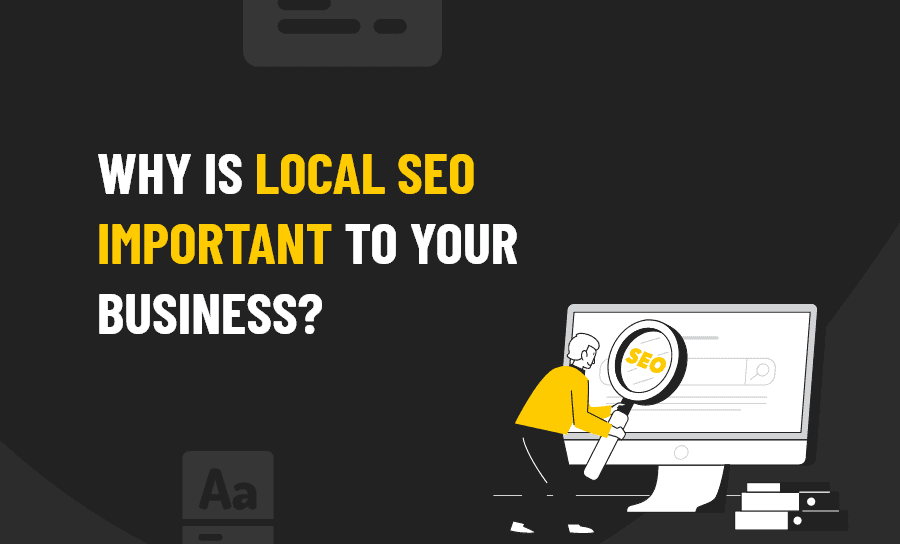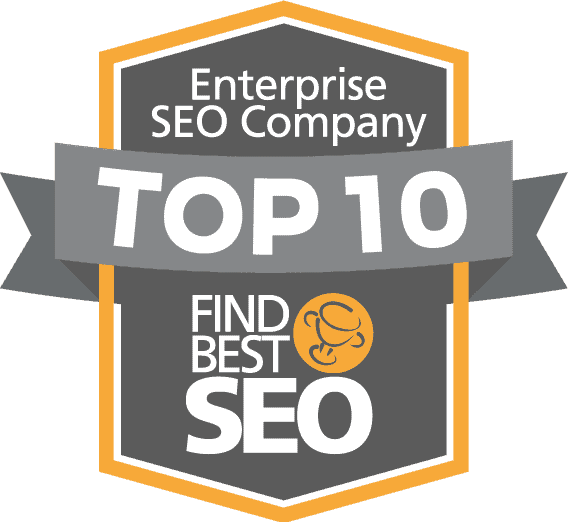Ensuring that your business is visible so that it can be seen by customers far and wide is a challenging task. In a world where businesses rely heavily on the internet and technology to be successful, marketing your website appropriately to boost your business and the opportunities you open yourself up to is incredibly important for growth.
Customers need to be aware of exactly what you do, where you are located and how they can approach your business offline. Whether you are willing to put in the work yourself or else want to seek the advice of SEO services or an eCommerce SEO agency, making sure that your website is suitably optimised has never been more important to businesses.
If you need a little extra push why in the United States alone, about 87% of the market share is made up of users searching for LOCAL listings. This means they are looking for “by me”, “near me”, “in (whatever home town)”.
Having and running a business is a challenge in itself. Running a successful business online is all well and good and having an optimised website that allows customers to find your products is a proactive way of building a client base. While optimising your website to give your products the best chance of being found is key to building a successful business, ensuring that people know exactly where your business is based, and targeting customers in your local area is equally important.
This is where local SEO comes into the mix – if you find that you are not acquiring local business geographically despite the fact you’re actively targeting that audience on your website, you may find that you need to put a little bit of time into optimising your website for the area itself.
How can I use local SEO to optimise my website and build my business?
If you have an address in a particular area, city or county, you will probably find that it’s much easier to optimise your website for that area – the difficulty lies if you want to attract business from other areas, perhaps just outside of your city, where you are not physically located yourself. Where this is the case, enhancing your website can be done through the means of articles or blog posts. Writing about the area that you want to appeal to in an article is a simple way of optimising your website, but you may find that the content you produce has absolutely nothing to do with your business – the pages themselves exist only for SEO reasons, which can often appear forced.
Recycling information and repeatedly posting the same things will not benefit your business, so target your audience by producing appropriate content that will encourage them to stay on your website for as long as possible.
If your business is a plumbing business based in Birmingham, for example, you want to make sure that your website is listed towards the upper end of the search engine’s results. Your keyword needs to include what is known as a SiL – a service in location – as people searching for your service will most likely include that within their search: a possible keyword for you could be ‘emergency plumber in Birmingham’ or else ‘clogged drain Birmingham’.
Including these keywords within your website’s content will ensure that your service will show up on search engine results – the more optimised keywords throughout your website, the higher the page will rank. If you are unsure what keywords will be most suited to your business, then there are several keywords websites out there to peruse. Otherwise, searching one of your keywords on a search engine and considering the automatically generated responses could benefit you.
As well as optimising keywords within your web content, it’s important to produce meta descriptions that summarise the information on a particular page. Optimised keywords should be included within these meta descriptions.
Targeting the local area through keyword optimisation ensures that you have registered your business through the Google My Business facility is equally as important. The vast majority of searches made on Google are local searches yet still a large proportion of businesses have failed to claim their business on Google My Business – doing so will be a step in the right direction in terms of ensuring your business is optimised locally.
Mobile optimisation is equally as important as having an aesthetically pleasing desktop website – with an emphasis being placed on the use of mobile devices, people searching for a specific service or business are much more likely to contact a local business if they can find out all the information that they need on a mobile-friendly site. Ensuring that your mobile optimised website is quick, slick and easy to navigate is a sure-fire way of keeping hold of a potential customer- customers are much more likely to go back and find another website if your page takes an age load up for them.
Local SEO isn’t primarily about being top of the list on search engines, although it will likely help your business if you have better search engine rankings. However, having built good relationships with your clients can lead to direct traffic to your website and social media following, effectively yet indirectly making your Google visibility all the better.
What are some other aspects of local SEO?
Google’s Local 3-Pack is an important aspect to keep in mind about local SEO. Now, we did go over Google My Business briefly, and GMB is a part of this, but we can dive a bit further down the local SEO rabbit-hole beyond this.
Google’s Local 3-Pack is assigned to the Google My Business listings and includes the …wait for it…top THREE listings associated with that search. This means being page one on GMB is not enough. You need to aim for the first three positions.
It should also be noted that when a 3-pack is displayed, it can also be referred to as Google Snack Pack. 33% of users go to the local “snack pack” results, with 40% going to the regular organic results.
Now, Google used to have a 7-pack as well, which means the top SEVEN are shown…duh. But this did not look good on Mobile. No user wants to scroll forever through GMB listings, so again, aiming for the top 7 is not good enough.
A key to achieving this is to ensure you remember to NAP…that is the name, address, and phone number. Be sure your prospects know who you are, where you are, and how to contact you. So claim that listing, build out that profile, and provide some high-quality images.
Ideally, depending on the device searched, you want to be both position one and position one in the snack pack. This covers all your bases, but on some devices, the first organic result is displayed BEFORE the snack pack. Many users will click the first organic result instead of within the 3-pack if it is displayed first. If you can acquire both spots of this SERP real estate, it can help ensure great success.
All of the hints and tips above are starting points for improving your local SEO, but they should not be used independently. Focusing on optimising your keywords is important, for example, but won’t be much use to you if your business isn’t registered. In combination, all of the tips will work well and improve the local business you acquire.
If you worry that you don’t have the time or the confidence to approach this yourself, many agencies and consultancies out there can help you out. If you’re on the lookout for local SEO services London based then feel free to reach out to us at the earliest opportunity – we are here for all of your SEO needs, local or otherwise.












